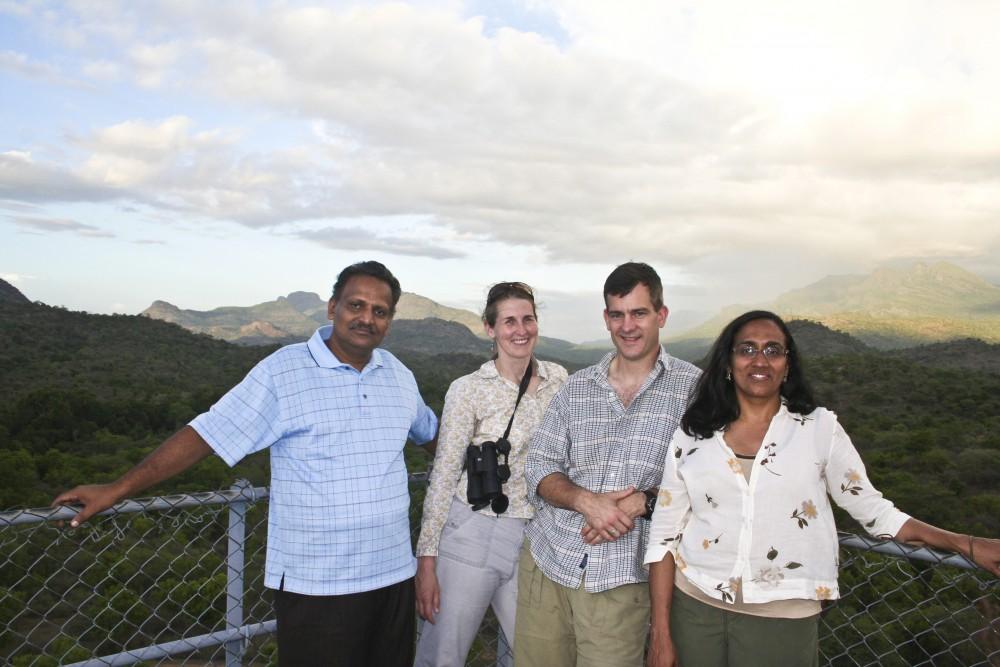New biology study abroad course offered

Courtesy Photo Sunny Like, director of IISAC, Erin Naegle, Paul Keenlance and Shaily Menon are pictured at a watch tower in the Chinnar Wildlife Sanctuary.
Oct 3, 2010
Students looking for an exotic and memorable study abroad experience need look no further. Two new biology courses, both of which with an overall focus on sustainability, were added to Grand Valley State University’s international program last month that will allow students to spend three weeks in Michigan and three weeks in Kerala, India while studying the unique environments found nowhere else in the world.
Erin Naegel, Paul Keenlance and Shaily Menon, professors of the biology department and, in Keenlance and Menon’s case, the natural resources management program, created the two classes.
“We recognize that as a biology department, we have an invested interested in sustainability,” Naegle said. “At the past couple of departmental meetings, we have started to have the discussion of how we can formally address that in our curriculum development and how we can best work with other sustainability efforts on campus.”
The courses, ENS 380: Sustainable Communities and NRM 380: Natural Resource Management, touch on the core of sustainability, Keenlance said. The hope is that students will learn that biology at its root focuses on the environmental aspect of sustainability. In India, the students will do fieldwork and case-studies to learn about natural resources, environmental degradation, the human element of environment and many more subjects.
“We, as humans, need to live sustainability,” Menon said. “Our human communities need to be sustainable in terms of the choices we make, what we eat and where we throw our waste. The choices we make can harm the environment. We also want our natural communities to be able to support human life for a long time, not just this generation.”
The professors decided to have the program in India because of its great level of biodiversity and various types of ecosystems. India is one of the global biodiversity “hotspots”, which is a high concentration of flora and fauna that are found nowhere else in the world.
“A lot of the world’s biodiversity are in locations like India, which is still developing in its economy and population,” Keenlance said. “There is a real risk in how the human societies develop and how they will impact the environment.”
The International Institute for Scientific and Academic Collaboration (IISAC), a nonprofit organization that seeks to promote interaction and networking among students and professionals in developed and developing countries to build global citizens with international perspectives, according to the IISAC web site, assisted in creating the program.
Liz Smith, Coordinator of the Padnos International Center, said that she thinks this is a great study abroad experience for students to become involved in.
“I think that with Grand Valley’s focus on sustainability, on being a green campus and really embodying that commitment in every way, this program extends and builds on that commitment,” she said. “These courses are also really accessible to all students, all majors, which I think will serve this community well.”
These courses fulfill the Earth and Environment theme and will be available in Spring 2011.
“We are offering the opportunity to students to expand their horizons and learn about these things we teach them in courses here, but learn about them in a more global and international perspective because it is all one world,” Menon said.























